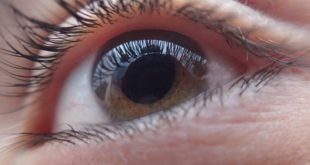
What Is Tinnitus?
Tinnitus is a common condition that occurs when one or both ears experience ringing or other sounds. It’s not a disease itself but rather a symptom of an underlying condition. Here’s an overview of tinnitus, including its causes, symptoms, and treatment:
Causes of Tinnitus:
- Exposure to Loud Noise: Prolonged exposure to loud noises, such as those from heavy machinery, firearms, or concerts, can damage the delicate structures of the inner ear, leading to tinnitus.
- Age-related Hearing Loss: As people age, they may experience a natural decline in hearing ability, which can also be associated with tinnitus symptoms.
- Earwax Buildup: Accumulation of earwax in the ear canal can cause blockages and affect hearing, leading to tinnitus symptoms.
- Medical Conditions: Various medical conditions can contribute to tinnitus, including Meniere’s disease, temporomandibular joint (TMJ) disorders, head or neck injuries, high blood pressure, and certain vascular disorders.
- Medications: Some medications, such as certain antibiotics, antidepressants, nonsteroidal anti-inflammatory drugs (NSAIDs), and chemotherapy drugs, can cause or exacerbate tinnitus as a side effect.
Symptoms of Tinnitus:
- Perception of Noise: Tinnitus is typically described as ringing, buzzing, humming, hissing, or roaring sounds in the ears.
- Persistent or Intermittent: Tinnitus can be constant or come and go.
- Severity Varies: The severity of tinnitus can range from mild annoyance to significantly affecting quality of life.
- Accompanying Symptoms: Tinnitus may be accompanied by hearing loss, vertigo, or ear fullness in some cases.
Treatment of Tinnitus:
- Management of Underlying Conditions: Treating underlying medical conditions contributing to tinnitus, such as high blood pressure or TMJ disorders, can help alleviate symptoms.
- Hearing Aids: For individuals with hearing loss, wearing hearing aids can help improve hearing and reduce the perception of tinnitus by amplifying external sounds.
- Sound Therapy: Using external noises to distract from or mask the perception of tinnitus. This can include white noise machines, fans, or background music.
- Cognitive Behavioral Therapy (CBT): CBT techniques can help individuals manage the emotional distress and anxiety often associated with tinnitus by changing their reactions and perceptions of the condition.
- Medications: In some cases, medications may be prescribed to help alleviate symptoms such as anxiety or insomnia associated with tinnitus. These may include antidepressants, anti-anxiety drugs, or sleep aids.
- Tinnitus Retraining Therapy (TRT): TRT combines sound therapy with counseling to help individuals habituate to the sound of tinnitus and reduce their perception of it over time.
It’s essential for individuals experiencing tinnitus to consult with a healthcare professional, such as an audiologist or otolaryngologist (ear, nose, and throat specialist), for proper evaluation and personalized treatment recommendations.
 Daryeel Magazine
Daryeel Magazine




